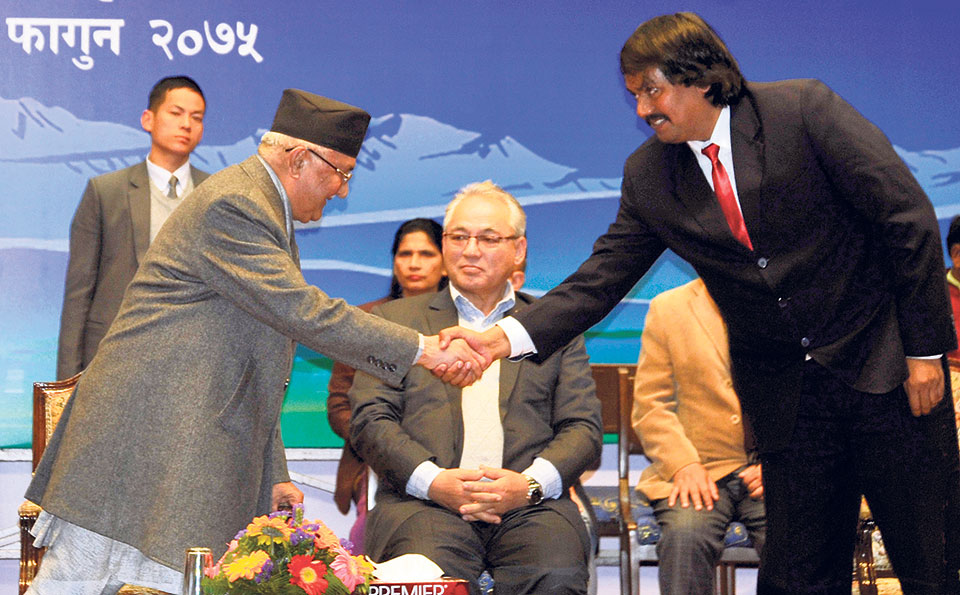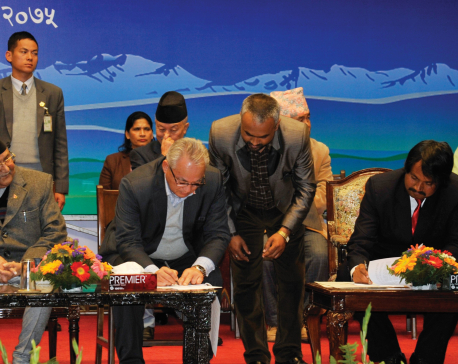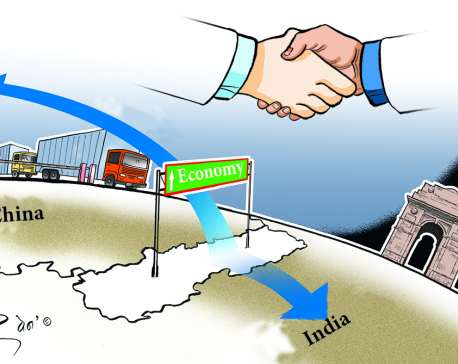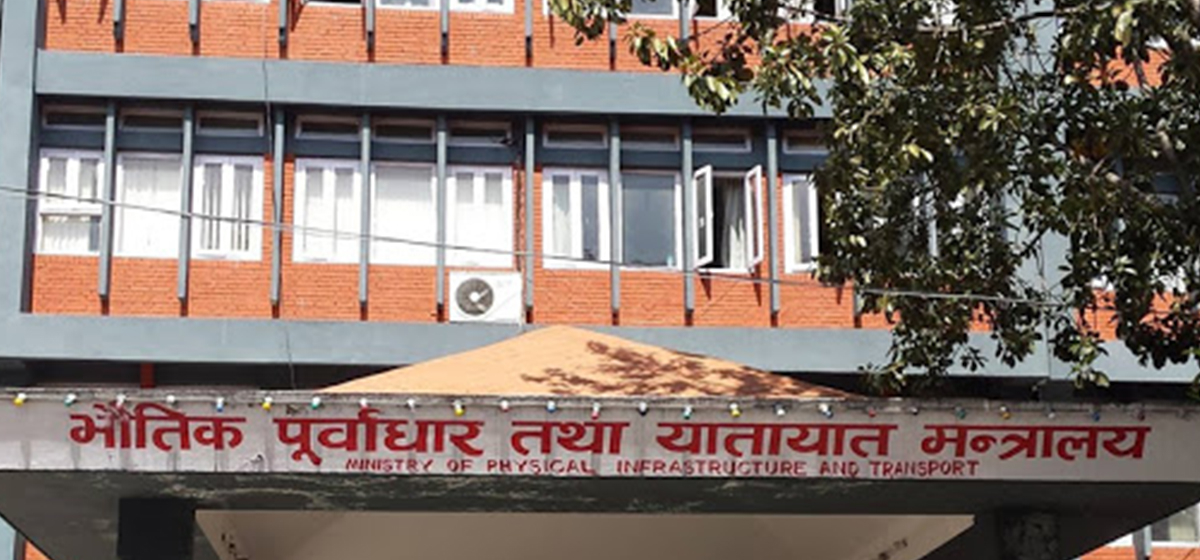
OR

Did the government sense that in absence of credible and strong opposition in Madhesi parties there is growing traction for a radical and secessionist politics?
There’s a popular folklore that the valley’s weather becomes warmer after Shivaratri. The folks from down south who come on pilgrimage to Pashupatinath carry along Kathmandu’s cold upon their return. The tale is as much racist, but the political climate has certainly become hot after the agreement between the government and Alliance for Independent Madhes. A day after his release was ordered on March 7 by the Supreme Court, AIM coordinator C K Raut, who was under arrest for the last five months, and government’s Minister for Home Affairs inked an 11-point agreement in the presence of Prime Minister and Co-chair of the ruling Nepal Communist Party K P Sharma Oli, the other Co-chair Pushpa Kamal Dahal Prachanda, former speaker of the house and senior NCP leader Subhash Chandra Nembang and a dozen of other leaders from both sides.
This unexpected deal sent shockwaves across the country. Criticism, support and differing interpretations continue to pour in the mainstream media as well as the social media. As per the official statement by the government Raut agreed to give up his secessionist agenda and from now on will seek to find solutions especially regarding Madhes within the constitutional framework. Raut and his supporters also interpret it as their victory. This is certainly no mean feat for all. But it would be interesting to analyze how things are taking turn in Tarai-Madhes and Kathmandu at present.
Support and criticism
It is interesting to see that except for ministers of the government and Raut’s ardent supporters, the deal has been mostly criticized. Members of the ruling party are angry because of the opaque manner in which the negotiations were carried out. Senior leaders of the party had hardly any idea of what was going on behind doors and they showed ignorance over details of the agreement even after it was signed that afternoon. Bhim Rawal, an influential leader of NCP, has vehemently criticized the government. Analyzing each point, he pointed that the government has erred and called it an agreement between two countries. He questioned the government for such a deal in which Raut is not even fully committed and that he has not accepted past mistakes. He demanded Raut should have withdrawn all his political materials that challenged the integrity of the state.
Raut’s ardent supporters gave him a hero’s welcome at Janakpur airport. It is visible from the body language of his core activist cohort that they had the knowledge of what was going on in Kathmandu during the back channel negotiations. However, his sympathizers and supporters took to personal attacks. Social media is replete with posts accusing Raut of selling his soul and comparing him with any other Madhesi leaders who compromised on Madhes issues. These are the very people who otherwise were not open about their secessionist views and would refrain from associating with Raut in public earlier.
Tactical move
Both the government and Raut have been at the opposite ends since he returned to Nepal and announced AIM in 2012. Since his first arrest in 2014, he was detained almost two dozen times. He was charged with sedition and treason each time he was arrested. Although he was acquitted by the Special and Supreme Court earlier, he still faces similar charges in several Madhes districts. While Raut was under detention, his organization’s activities suffered in lack of an effective leadership. He bought his release by paying the bail amount each time he was arrested. Perhaps this time it wasn’t that easy to get his release secured. And it is learnt from media reports that it was his brother who extended ‘olive branch’ for negotiations to the government this time around.
But Raut’s interpretation of the agreement and his supporters’ exuberance reflects that it was their calculated move to buy his freedom. In the process, a radical line of politics in Madhes also earned its legitimacy. Moreover, point six of the agreement states that his manifesto and political materials will not be made a subject of scrutiny in future on basis of which he was arrested several times. The agreement has provided him and his supporters much-needed relief.
It is not clear what prompted the NCP-led government to arrive at such a deal with AIM. If one goes by PM Oli’s statement at the signing of the agreement, in his typical comical manner he criticized Madhesi parties for taking advantage in C K Raut’s name. Did the government sense that in absence of credible and strong opposition in Madhesi parties (Sanghiya Samajwadi Forum is in government and Rastriya Janata Party supported from outside) there is growing traction for a radical and secessionist politics in Tarai-Madhes? Therefore, by providing a space for safe landing for Raut, PM Oli intended to kill two birds with one stone. One, he can take credit for mainstreaming an extremist political force. Two, he manages to sideline the status quoist Madhesi parties.
Way forward
The agreement didn’t materialize overnight. Even after two months long secret negotiations, there are ambiguities in the letters of the agreement. Janaabhimat in point two has been the most contentious word. Whether it simply means ‘electoral process’ or ‘referendum’ has drawn enough attention. Raut takes it as latter while the Home Minister speaking in the parliament said that if it is interpreted as such it takes us back to no deal. While Raut’s brother clarified that it was important for his brother to be free in order to continue his politics and thus persuaded him to relinquish ‘Free Madhes’ agenda; differing interpretations leave enough room for skeptics. On the other hand, a government having two thirds majority was under no compulsion to sign an agreement that gave undue leverage to a radical force.
Democracy is the most flexible system. Its beauty lies in accommodating all kinds of social and political forces. The letters of the agreement will be variously interpreted. But leaders involved in the process of negotiations from both sides know the underlying intentions. It is for them to responsibly execute the agreement for successful transformation of Madhes politics.
A friend of mine is of the view that next round of politics has just begun. Only time will tell how it will progress.
The author is an independent researcher
Twitter: @mandalexpress
You May Like This

Developing Madhes
If Prime Minister Oli and Chairman Dahal are truly concerned about Madhesi welfare, they should work to tame Koshi floods... Read More...

Beginning of new inning
Ineptitude of the subsequent governments had propelled CK Raut to become a prominent leader of Madhes from an insignificant figure Read More...

Tap the opportunities
Low level of economic integration combined with untenable trade deficit is making Nepal vulnerable to external shocks ... Read More...










Just In
- MoPIT prepares draft of National Road Safety Act, proposes rescue within an hour of an accident
- Light rainfall likely in hilly areas of Koshi, Bagmati, Gandaki and Karnali provinces
- Customs revenue collection surpasses target at Tatopani border, Falls behind at Rasuwagadhi border in Q3
- Rain shocks: On the monsoon in 2024
- Govt receives 1,658 proposals for startup loans; Minimum of 50 points required for eligibility
- Unified Socialist leader Sodari appointed Sudurpaschim CM
- One Nepali dies in UAE flood
- Madhesh Province CM Yadav expands cabinet









Leave A Comment